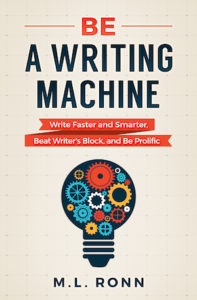Great day today. A few items (this won’t be a R.A.M.P. post).
The first is that a couple of folks had a conversation in last night’s chat about the ethics of AI and the consequences of using AI services. It’s an important discussion.
I’m bullish on this tech, but I’m not silly about it. I’ve talked about this topic at great length in my book series Indie Author Confidential, but the short of it is that there are tradeoffs to using AI.
Developers aren’t giving us this tech out of the goodness of their hearts. They’re doing it for profit, and to achieve a higher goal—artificial general intelligence. But mostly, they’re giving us what they’re giving us because they need our data. Data is the currency of the twenty-first century.
All the data you own (and produce) is more valuable than anything physical you own—even your home or retirement accounts.
Subscriber David Durrani made an excellent point that I want to highlight: “Everything you upload is reviewable” by developers. This is 100% correct. This is true of AI services like GPT-3, but it’s also true of services like Grammarly and Gmail.
Everyone wants your data.
If you’ve followed me for a while, you can drink every time I talk about the importance of reading terms of service. For example, did you know that data you upload to services like Google and Dropbox are probably being used to train AI models? Your emails in Gmail certainly are. So, I think it’s important to point out that despite people being so vehemently opposed to AI art, they’re probably giving permission to use their data in other areas of their lives.
(I’m not saying this is a good thing or that AI art detractors don’t have valid points. I’m just pointing this out.)
Because that’s what developers have to do. They have to train models. To do that, they need copious amounts of data. This is frequently why companies give services away for free or next to nothing—the data they get from you is far more valuable. You get some convenience and utility. (ChatGPT is a great example of this. OpenAI has made it free so that it can gather data about how to improve it.)
All of us leak data every day. Sometimes we are aware of it; other times, it happens without our knowledge. Sometimes, it happens without our consent, as is up for debate right now with AI art. But you can’t oppose AI on the grounds that you want to keep your data private—your data was never private to begin with.
We all can choose what services we “invest” our data with, if we invest it at all. If there’s something you don’t agree with, then don’t use the service. But you can’t avoid AI in today’s age. Everyone is helping train models in one way or another. The most important thing you can do is invest your data with responsible companies and know upfront as much as possible what you’re giving up. And, the benefit you get should be substantial enough to warrant giving it up.
For me, I’m betting on AI improving the efficiency and quality of many of the tasks that I do on a daily basis that this efficiency will allow me to do more of the “important things”. You know, write books, talk to readers, and virtually anything else. I voluntarily choose to offer some of my data so I can determine how to develop a competitive advantage. One example of this is developing an editing app using GPT-3 to help me create cleaner manuscripts. Another is using services like Dragon and Whisper to allow me to dictate my stories. When it is safe to do so, I will use AI art to create some of my book covers. All of these will help me create better books faster, satisfy my readers, and spend more time doing what I enjoy as a writer.
I also know that AI isn’t going anywhere, and it’s coming for us writers soon. We’re going to need every advantage we can get in the future. It’s far better to start adapting now than to wait for what is almost inevitable—an AI that can write full-length novels just as well or better than we can. When that happens, anyone will be able to spawn novels at the click of a button. I actually don’t think that’s a bad thing, but it will change the dynamics of what it means to be a writer.
As writers, we should be watching what’s going on in the AI art space and paying very close attention, because what happens to art will happen similarly to books. It won’t be quite the same, but the overtones will be. You don’t have to like it, but you do have to live in reality.
David also brought up some great points yesterday about AI and copyright. It’s untested in the courts. Who owns the copyright to AI-created work? If I use an AI to write a book and the AI company I use says the work isn’t copyrightable, could someone take sections of my book? Lots of thorny issues right now, which is why I recommend treading carefully with any AI services that are customer-facing such as AI art and Sudowrite. These issues will get worked out in the next few years and we’ll have a clearer path of what we can and can’t/should shouldn’t do.
Until then, start learning, experimenting, and reading the tea leaves. The folks who do will be well-positioned to thrive when AI writing reaches the same watershed moment that AI art is having right now.
Anyway, those are my thoughts tonight. Have a good night and keep the comments coming. All viewpoints are welcome.

